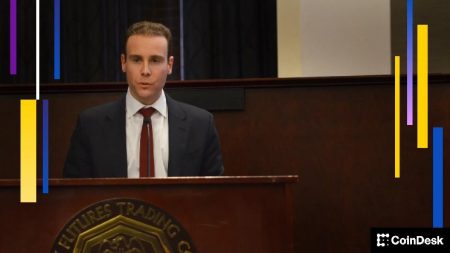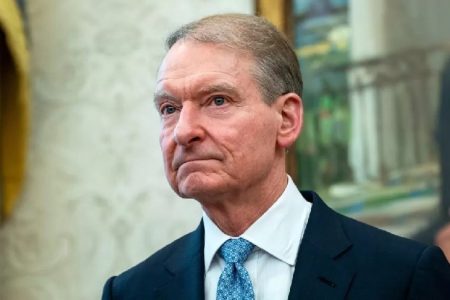Do Kwon Seeks 5-Year Maximum Sentence in $40 Billion Terra-Luna Collapse Case
Terraform Labs Founder Argues for Leniency in High-Profile Cryptocurrency Fraud Case
In a significant development in one of cryptocurrency’s most notorious collapse cases, Terraform Labs founder Do Kwon has formally requested that a United States court cap his prison sentence at five years after pleading guilty to fraud charges related to the catastrophic $40 billion implosion of the Terra-Luna ecosystem. The request comes as the cryptocurrency industry continues to grapple with regulatory scrutiny and the fallout from several high-profile failures that have shaken investor confidence in digital assets.
According to court documents obtained by financial crime reporters, Kwon’s legal team submitted a comprehensive 23-page petition to the Federal Court for the Southern District of New York on November 26. The detailed filing presents a case for what his attorneys described as a “sufficient and appropriate” sentence that would not exceed five years of incarceration. This request stands in stark contrast to prosecutors’ recommendation, which suggested a substantially longer period of confinement for the disgraced tech entrepreneur whose actions sent shockwaves through global cryptocurrency markets in May 2022.
Defense Strategy Focuses on Founder’s Motives and Industry Context
The defense’s sentencing request directly challenges the prosecution’s pursuit of a potential 12-year imprisonment term, which Kwon’s attorneys characterized as failing to account for critical contextual factors surrounding the case. Central to their argument is the assertion that Kwon’s actions stemmed not from malicious intent or schemes for personal enrichment, but rather from what they described as “overconfidence and the mistakes of a young founder made under pressure” in the rapidly evolving and often unpredictable cryptocurrency landscape.
This characterization attempts to frame the Terra-Luna collapse as a tragic business failure rather than a deliberate fraud scheme. Kwon’s guilty plea in August acknowledged two specific fraud charges connected to TerraUSD (UST), an algorithmic stablecoin designed to maintain parity with the US dollar, and its companion token Luna. The defense petition notably attributed significant responsibility for the system’s ultimate failure to “third-party companies exploiting vulnerabilities in the system through coordinated transactions” — suggesting that malicious external actors played a substantial role in triggering the catastrophic depegging event that ultimately collapsed the entire ecosystem.
The Critical Disclosure Failure That Undermined Terra’s Stability
Financial technology experts following the case have identified a pivotal issue at the heart of the prosecution: Kwon’s failure to disclose a secret stability agreement with major cryptocurrency trading firm Jump Trading in 2021. According to court documents, this undisclosed arrangement was implemented to maintain TerraUSD’s dollar peg — a critical mechanism for the stablecoin’s promised functionality. By concealing this intervention from investors, prosecutors argued that Kwon significantly misrepresented the inherent risks of the project.
“The non-disclosure of external support mechanisms fundamentally ‘overshadowed the risks associated with the project,'” noted the court filing, referencing how investors were deprived of critical information about how the stablecoin maintained its stability. This omission proved catastrophic when market pressures mounted in May 2022, as the system lacked sufficient reserves to maintain its promised dollar parity once the secret support mechanism failed. The resulting death spiral saw both UST and Luna tokens lose virtually all their value within days, wiping out billions in investor capital and triggering contagion effects across cryptocurrency markets.
Detention Conditions and International Legal Complications
In arguing for a more lenient sentence, Kwon’s defense team emphasized the significant hardships he has already endured during nearly two years of detention in Montenegro, where authorities apprehended him in March 2023 while attempting to travel using falsified identification documents. The petition detailed particularly harsh conditions during this period, including time spent in solitary confinement, suggesting that these circumstances should factor substantially into the court’s sentencing determination.
The international dimensions of Kwon’s legal troubles add considerable complexity to his case. Beyond the charges he faces in the United States, court documents acknowledged that Kwon will subsequently face prosecution in South Korea on parallel charges related to the Terra-Luna collapse. His attorneys noted that South Korean authorities could potentially seek a sentence of up to 40 years imprisonment, raising the prospect of consecutive punishments across multiple jurisdictions for essentially the same underlying conduct. This international legal exposure presents an unusual challenge for the court in determining appropriate sentencing parameters.
Implications for Cryptocurrency Regulation and Industry Accountability
As the cryptocurrency industry watches this landmark case unfold, regulatory experts suggest the court’s decision will send important signals about accountability in digital asset markets. The Terra-Luna collapse ranks among the most significant failures in cryptocurrency history, preceding and possibly contributing to subsequent industry crises including the FTX exchange bankruptcy. How the justice system ultimately penalizes such high-profile failures may significantly influence both regulatory approaches and industry self-governance mechanisms moving forward.
The judgment in Kwon’s case, scheduled to be announced on December 11, arrives at a critical juncture for cryptocurrency markets as they navigate increasing regulatory scrutiny worldwide. While proponents of digital assets argue for regulatory frameworks that encourage innovation, cases like Terra-Luna highlight the potential consequences when technological experiments involving billions in investor capital fail catastrophically. Whatever sentence Do Kwon ultimately receives, the broader questions about appropriate oversight, disclosure requirements, and investor protections in decentralized finance will continue to challenge policymakers, industry participants, and investors alike as the cryptocurrency ecosystem continues its turbulent maturation process.
This article is provided for informational purposes only and does not constitute investment advice. Readers should conduct their own research and consult financial advisors before making investment decisions, particularly in volatile markets such as cryptocurrencies.












![Standard Chartered Cuts Bitcoin and Ethereum Forecasts, Predicts Bottom by [Date] at $[Price]](https://commstrader.com/wp-content/uploads/2026/02/3f2a2e40b5435ea86ade84c25b7ee76c02e7fe3c-450x300.jpg)

